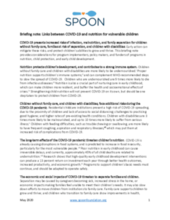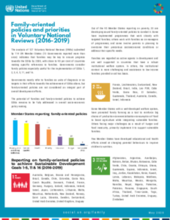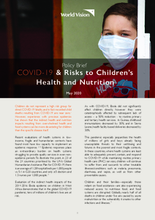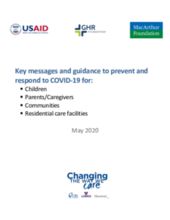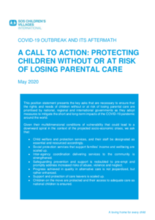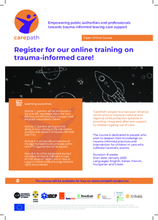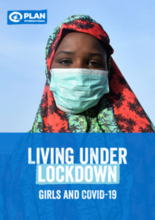Displaying 1441 - 1450 of 4424
This briefing note from Spoon Foundation provides considerations for program implementers, policy makers, and funders of programs in nutrition, child protection, and early child development.
This analysis of 127 Voluntary National Reviews (VNRs) submitted by 114 UN Member States (13 Governments reported more than once) indicates that families may be key to ensure progress towards the SDGs by 2030, with close to 90 per cent of countries making specific references to families.
Based on experience working with children, families and communities in emergencies, including epidemics, in this policy brief, World Vision outlines a number of recommendations for Governments, UN Agencies, Donors, NGOS, Private Sector and Faith Leaders to mitigate the impacts of COVID-19 on children’s health and nutrition, particularly for vulnerable children.
This document features key messages including critical information about keeping children safe and healthy during the COVID-19 pandemic. The messages are designed for use by country child protection actors, such as public child protection officers, directors of residential care facilities and government and civil society actors that work with vulnerable children and families.
This position statement presents the key asks that are necessary to ensure that the rights and needs of children without or at risk of losing parental care are prioritised by national, regional and international governments as they adopt measures to mitigate the short and long-term impacts of the COVID-19 pandemic around the world.
This course is designed for people who wish to deepen their knowledge on trauma-informed practices and intervention for children in care who suffered traumatic events.
This joint statement from the EU, GRULAC and the Group of Friends of Children and the SDGs expresses support for the appeal by the United Nations Secretary-General António Guterres for countries to prioritize children’s education, food, health and safety amid the COVID-19 pandemic.
To aid understanding of the impact of COVID-19 on girls and young women, as well as talking to girls in lockdown, Plan International has re-examined four previous studies of crises to try and get a clearer picture of the insecurity and vulnerability facing girls now.
This webinar focuses on strengthening family and caregiving environments, a standard that was added to reflect the new focus on the socio-ecological model.
In this webinar, Zeinab and the Case Management Task Force hosts a discussion on adapting child protection case management in the context of COVID-19.

